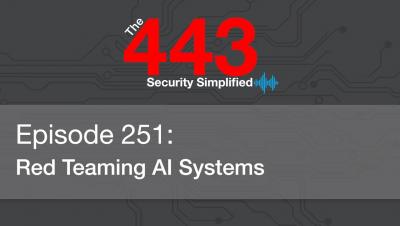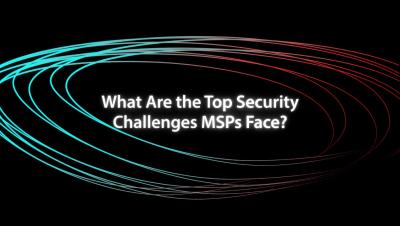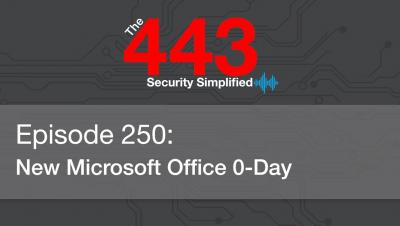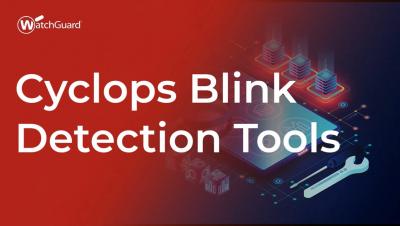Security | Threat Detection | Cyberattacks | DevSecOps | Compliance
July 2023
The 8 commandments to avoid BEC attacks
Business email compromise (BEC) continues to be one of the fastest growing and most risky attack vectors for companies, as it has become a multimillion-dollar business that causes almost 80 times more losses than ransomware.
Virtual Patching: the solution to Windows 10 EOL
Windows 10, which is still the most widely deployed operating system on desktops, has announced end of support for October 14, 2025. The current version, 22H2, will be the last version of Windows 10, which means that Microsoft will stop providing support and security updates for that particular version and any vulnerabilities discovered after the EOL (End of Life) date will not be fixed by Microsoft, leaving your operating system, and that of your customers, exposed to security risks.
Five Critical Security Platform Gaps to Avoid
The debate surrounding the integration of best-of-breed versus a single-vendor security platform has been discussed for some years. On one side, we have niche solutions that offer a specialized approach to addressing cybersecurity challenges. On the other side, there are the potential benefits of a consolidated platform that promises seamless interoperability for an exponential improvement of security posture.
The 443 Podcast - Episode 251 - Red Teaming AI Systems
Webinar: Top Security Threats Worldwide Q1 2023
6 cybersecurity challenges for state and local governments
Today’s state and local governments are facing a deluge of increasingly sophisticated cybersecurity threats. As custodians of vast amounts of sensitive information on their citizens, these institutions are high-value targets for threat actors. The ongoing digitization of government functions combined with the growing prevalence of advanced cyberattacks has significantly escalated the level of risk these organizations must manage.
MSPs Prefer WatchGuard
How ThreatSync Powers Profitable Managed Security
The global managed security market is projected to experience significant growth in the coming years. Factors such as the increasing frequency of cyberattacks, stringent regulatory requirements, cybersecurity insurance adoption, security tool sprawl, and the shortage of in-house security expertise drive organizations to seek reliable managed service providers (MSPs).
Explore the ONE Security Platform for MSPs
As cyberattacks and the overall threat landscape grow more complex, managed service providers (MSPs) need to evolve. As an MSP, you must be capable of protecting customers from attacks targeting networks, devices, and users. Finding ways to protect your customers’ expanding threat surface is one thing, but doing so without compromising on operational efficiency or profitability is another. At times this can feel like an insurmountable task.
WatchGuard Wins Best SMB Network Security at CRN 2023 Tech Innovator Awards
We are thrilled to share the exciting news that CRN®, a brand of The Channel Company, has named WatchGuard the SMB Network Security winner, as well as a finalist in the Endpoint Protection category, as part of its prestigious annual CRN Tech Innovator Awards for 2023! CRN’s annual Tech Innovators list showcases the most innovative vendors in the IT channel across 37 different key technology categories.
Why Unified Security is the Answer
The 443 Podcast - Episode 250 - New Microsoft Office 0-Day
Undecrypting the cybersecurity alphabet soup: MDR vs. XDR
XDR and MDR are cybersecurity solutions to enhance an organization's threat identification and response capabilities. While both solutions target the same objective, they employ different approaches. MDR strengthens an organization's internal security team with external expertise, whereas XDR streamlines security architecture through a centralized dashboard and automation of tedious tasks.
Tutorial: Wi-Fi Troubleshooting Fundamentals
WatchGuard Expands Identity Protection Capabilities with New AuthPoint Total Identity Security Bundle
Keep Identity Real with MFA and Strong Credentials
Would you bet your business on the strength of every employee’s password? If you haven’t deployed business-grade MFA and credentials management throughout your organization, you are probably on the losing end of that bet. Here’s why: Despite the challenges, passwords are not going anywhere any time soon.
Tutorial: Cyclops Blink Detection Tools
Tutorial: Single Sign-On with RADIUS
What is the difference between traditional antivirus and EDR?
The multiplicity of devices and the need to access network resources from anywhere has blurred the traditional security perimeter and extended it beyond the office, making endpoint security an essential pillar of a company's cybersecurity strategy. Both antivirus (AV) and endpoint detection and response (EDR) solutions are designed to secure devices. However, these solutions provide very different levels of protection.
Tutorial: Get Started with AuthPoint Password Management
3 tips on how to adapt your company to the new PCI DSS security standard
Digital transformation has changed the way people make purchases. The growth of ecommerce has led to credit cards becoming one of the most widely used payment methods, but mismanagement could jeopardize the integrity and security of company and customer data.
Improving operational efficiency: the biggest challenge MSPs face
The growth of the managed service provider (MSP) business and its ability to increase profits depends primarily on one aspect: efficiency. However, a recent study points out that improving operational efficiency is the biggest challenge MSPs face in obtaining consistent growth and profitability. To tackle this, 66% believe that automating as many procedures as possible is a key IT operations issue for enterprises in 2023. Improvements in automation have become a top priority for MSPs.















